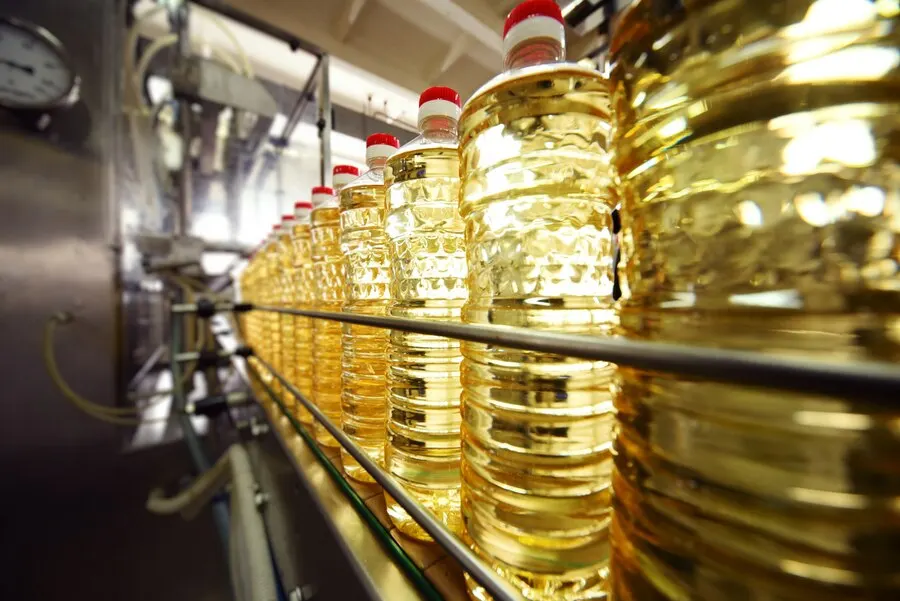Oil is a kitchen staple, used in countless food products and almost daily in our cooking. But do we really know what’s in the common oils we buy at the supermarket? Keep reading to uncover the truth about two of the most popular oils—canola and soybean. Learn how they’re produced, why they may harm your health, and discover better alternatives.
To start, let’s look at how these oils make their way from production to the shelves!
Canola and Soybean Oil Processing

Canola oil is a significant crop, especially in Canada, where it’s the third most important after wheat and barley (1). Given its economic value, the production process is designed to be as efficient as possible, making it cheap and accessible. But at what cost to our health?
The process begins with the collection of oil seeds such as soybeans, rapeseed, cotton, and sunflower. Most of these seeds come from genetically engineered plants designed to resist the heavy use of pesticides. Canola oil, for example, is derived from a genetically modified version of rapeseed oil. Natural rapeseed oil is toxic, so manufacturers sought to create a cheaper, easier-to-grow alternative—thus, canola oil was born.
The seeds are then processed. First, they are soaked in a hexane solvent bath to extract the oil. Hexane is a byproduct of crude petroleum refining and is mildly anesthetic. While useful for oil extraction, hexane is toxic to the environment, contributing to greenhouse gases.
Next, phosphate is added to the mixture to help separate the seed pulp from the oil. The crude oil produced goes through further steps, including degumming, neutralization, and bleaching, to refine it into what we see on store shelves.
Refining Canola and Soybean Oil
The crude vegetable oil is then put through further refining techniques including degumming, neutralization, and bleaching.
In this process, water is added to the oil. A large part of the water-soluble and even a small proportion of the non-water soluble products are removed.
Health Consequences of Neutralization
Neutralization: Any free fatty acids, phospholipids, pigments, and waxes in the extracted oil promote fat oxidation and lead to undesirable colors and odors in the final products. These impurities are removed by treating the oil with caustic soda or sodium carbonate. The impurities settle to the bottom and are drawn off. The refined oils are lighter in color, less viscous, and more susceptible to oxidation.
Caustic soda is corrosive to the eyes and skin when in direct contact. It can also cause throat and mouth irritation as well as causing nausea, stomach cramps, and diarrhea (2).
Health Consequences of Bleaching
Bleaching: The major purpose of bleaching is the removal of off colored materials in the oil. The heated oil is treated with various bleaching agents such as activated carbon, or activated clays. This may remove any impurities, but it can also lead to health problems.
The bleaching process strips the oil back of any natural antioxidants, which are important in maintaining a healthy body!

Health Consequences of Deodorization
Deodorization is the final step in the refining of vegetable oils. Pressurized steam at extremely high temperatures is used to remove odors and tastes that would affect the final product. The oil produced is referred to as “refined oil” and is ready to be consumed or for the manufacture of other products. A light solution of citric acid is often added during this step to inactivate any metals such as iron or copper present in the final product.
The standard deodorization process removes a large portion of the omega-3 fatty acids by turning them into trans fatty acids’(3). These fatty acids can be damaging to health by raising your bad cholesterol levels, increasing the likelihood of you developing heart disease or suffering from a stroke.
The research found that up to ‘4.6% of all the fatty acids in canola are trans isomers’ (4). These trans isomers are a type of plastic, such as nylon; which is found in our clothes! So we are consuming substances which we can wear and use,
Health Consequences of Cooking With Canola and Soybean Oil
Canola and soybean oils have become kitchen staples, but their highly processed nature makes them far from healthy. These oils are notorious for increasing LDL, or “bad” cholesterol, which can lead to heart disease. Over time, the regular consumption of these oils has been linked to serious health concerns, including a higher risk of heart disease and even some cancers.
Additionally, these oils can deplete your body’s Vitamin E levels, a key antioxidant that helps maintain immune function and healthy skin. A growing body of research also suggests that these oils may contribute to the development of autoimmune disorders such as lupus, multiple sclerosis, and neuropathy, making them even more concerning for regular consumption.
There’s more: excessive consumption of canola and soybean oil has been associated with muscle paralysis and respiratory issues. The chemicals used in the refining process can also block natural enzymes in your body and suppress your immune system, leaving you more vulnerable to illnesses.
With so many potential risks, it’s clear that relying on these oils as everyday staples could be doing more harm than good.
Better Alternatives: Healthier Oils to Choose
Raw coconut oil
Coconut oil has many positive effects on our health, from helping improve bad cholesterol levels to lowering body fat and containing anti-inflammatory effects (7). It is also extremely delicious and can be used for a myriad of other things- including a great way to improve hair health! Just make sure you are buying the right type, check out our guide to finding it here!
Avocado Oil
Another way to use our favorite vegetable! It’s great to use for frying as it has a high smoking point, so you won’t stink out your house as soon as you turn on the cooker! Discover more benefits of using this great oil here.
Olive Oil
If you haven’t discovered your love for olive oil yet then you are about to! This delicious, natural ingredient is great on salads or drizzled over a piece of bread. It’s a fantastic alternative to over manufactured vegetable oils. Just make sure you are buying the best kind of olive oil you can as some manufacturers have found a way to combine bad oils with olive oil. But if you find its pure form then you are in for a treat.
Choose Wisely for Better Health

It’s evident that many oils, like canola and soybean, can negatively affect our health- just look at the processes it goes through in production! Considering soybean and canola oil contain ingredients that make plastic we can be assured that opting for a more natural type of oil will benefit our health in the long run. Go for olive, avocado or coconut oil for a delicious, healthier diet change.



